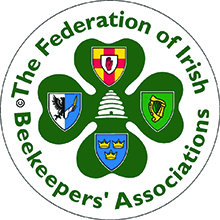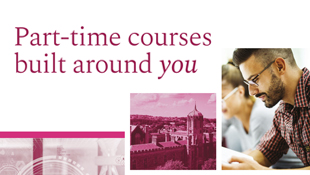-
Courses

Courses
Choosing a course is one of the most important decisions you'll ever make! View our courses and see what our students and lecturers have to say about the courses you are interested in at the links below.
-
University Life

University Life
Each year more than 4,000 choose University of Galway as their University of choice. Find out what life at University of Galway is all about here.
-
About University of Galway

About University of Galway
Since 1845, University of Galway has been sharing the highest quality teaching and research with Ireland and the world. Find out what makes our University so special – from our distinguished history to the latest news and campus developments.
-
Colleges & Schools

Colleges & Schools
University of Galway has earned international recognition as a research-led university with a commitment to top quality teaching across a range of key areas of expertise.
-
Research & Innovation

Research & Innovation
University of Galway’s vibrant research community take on some of the most pressing challenges of our times.
-
Business & Industry

Guiding Breakthrough Research at University of Galway
We explore and facilitate commercial opportunities for the research community at University of Galway, as well as facilitating industry partnership.
-
Alumni & Friends

Alumni & Friends
There are 128,000 University of Galway alumni worldwide. Stay connected to your alumni community! Join our social networks and update your details online.
-
Community Engagement

Community Engagement
At University of Galway, we believe that the best learning takes place when you apply what you learn in a real world context. That's why many of our courses include work placements or community projects.
Bees & Beekeeping - Apiculture (Diploma)
Course Overview
The main aim of this course is to provide quality third level education on bees and beekeeping. This course may be of interest primarily to beekeepers or those considering becoming a beekeeper. It will also be of interest to anyone who has an interest in entomology, pollinators and the decline of bees and pollinators more generally.
In this course students will learn about Entomology (the world of insects) including the diversity of insects, their structure and general biology and their importance to humans. Of course, a lot of focus will be placed on the honeybee. We will also study the complex behaviour of social insects (bees, wasps and ants) and how this is relevant to beekeeping. Honeybee health is of huge importance globally right now and one module will cover this in detail while another will investigate the evolution of the insect group that contains bees. In addition to these topics, practical modules will take students from the basics of learning how to be a beekeeper through to some advanced elements of this area including bee breeding, and the production of honey and other bee products.
This course is run in association with FIBKA.

As this course is the first of it’s kind in Ireland, please see our Fact Sheet for some common question & answers.
Mode of Study: Blended Learning
Applications and Selections
Applications open from 1st April 2024.
Applications are made online via the University of Galway Applications System. This course is listed under Adult Learning Undergraduate\Postgraduate, CPD, Micro-credentials & Summer School Applications.
Please visit our How to Apply page for Application tips and Supporting Documents information.
NB: Applicants should include in their application a personal statement giving reasons for why they want to complete the Diploma and what makes them suitable as candidates. Preference may be given to those who would benefit from having a qualification in this field, e.g. beekeepers, or those who are interested in promoting or assisting biodiversity/conservation priorities. The personal statement should be circa 600 words and should outline why you are interested in this course, what experience have you in relation to bees and beekeeping and how it fits into your career or hobby objectives. Our Career Development Service have created a helpful booklet to help you write your Personal Statement.
Who Teaches this Course
Requirements and Assessment
Candidates must already own or have access to (or commit to acquire) at least one hive of bees to be able to complete the Diploma. While not essential, candidates should ideally be a member of a beekeeping association and have completed an introductory beekeeping course. If students own their own hive, they should register their hives with DAFM.
As this course is delivered via Blended learning most of the material is delivered online, please visit to our Online Learning webpage for further details on what is required to participate in a blended learning course.
Key Facts
Entry Requirements
Entry requirements for part-time students can be found here (i.e. age, english language requirements etc.).
Additional Requirements
Recognition of Prior Learning (RPL)
Duration
2 years, part-time
Next start date
September 2024
A Level Grades ()
Average intake
30
QQI/FET FETAC Entry Routes
Closing Date
NFQ level
7
Mode of study
Blended Learning
ECTS weighting
30
Award
Diploma
CAO
Course code
Course Outline
This course is comprised of six modules to be taken over two years, three modules per year. Each module is 5 ECTS, see module descriptions below:
Year 1
Entomology
This module is the study of insects including their relationships to humans and the environment. It will include focus on insect systematics and diversity, insect anatomy and physiology, their general biology and importance in agriculture including beekeeping, industry, and forensics.
Behaviour in Social Insects
This module introduces students to the world of life inside a social insect colony. Focused primarily on the honeybee, but including elements of other social insects, this module covers material relating to bee communication, including; pheromones, waggle dance, grooming and other hygienic behaviours, defence and reproductive behaviours amongst others.
Fundamentals of Beekeeping
This module will introduce the student to the basic principles of beekeeping including; what types of honeybees are involved and where to get bees, types of hives, boxes and equipment needed to keep bees, how to inspect a colony, treatment options for pests and diseases, how to catch, mark and clip queens and manage swarming, basic queen rearing and harvesting honey, and preparing the colonies for winter.
Year 2
Genetics and Evolution of Hymenoptera
This module will provide detailed information for students on Mendelian genetics, chromosomes, meiosis and mitosis. We will introduce students to the particular genetics associated with the hymenoptera including genetic aspects of asexual/sexual phases in the life cycle, inheritance in the honeybee, the genetic basis of sex determination including parthenogenesis. The module will also apply evolutionary genetics knowledge to give an outline account of the the evolution of the honeybee as a social insect and its subsequent evolution into multiple strains globally.
Honeybee Health
This module will introduce students to the factors impacting honeybee health. This includes bee-related factors that regulate honeybee health such as social immunity, influence of microbiome and plant-bee interactions. It will then introduce students to the factors that negatively affect bee health including diseases, pathogens and poisons, habitat decline, and other human influences.
Advanced Beekeeping
This module will develop the students’ knowledge of honey production and its preparation for show and sale. it will also deepen the students’ knowledge on apiary management including inspections, state of the art equipment and honey products and managing hygiene and disease.
Why Choose This Course?
Career Opportunities
This course will offer a formal qualification in Apiculture from a third level Institution recognised at QQI level 7 and will be useful if students wish to pursue beekeeping or other bee-related initiatives as a business venture.
Who’s Suited to This Course
This course is most suited to:
- Beekeepers (of ALL ages, backgrounds, locations etc.)
- Retirees
- Adults interested in a new hobby or something to supplement income part-time
- Adults interested in biodiversity and the plight of pollinators
Learning Outcomes
Transferable Skills Employers Value
Work Placement
Study Abroad
Related Student Organisations
Course Fees
Fees: EU
Fees: Tuition
Fees: Student levy
Fees: Non EU
A fee scholarship of up to 30% may be available for students who wish to upskill for the purposes of re-employment. For more information download the 2024_25 Fees Scholarship Form
Find out More
Course Administrator
Tel: 091 492144
Fax: 091 525051
E-mail: artspt@universityofgalway.ie



















